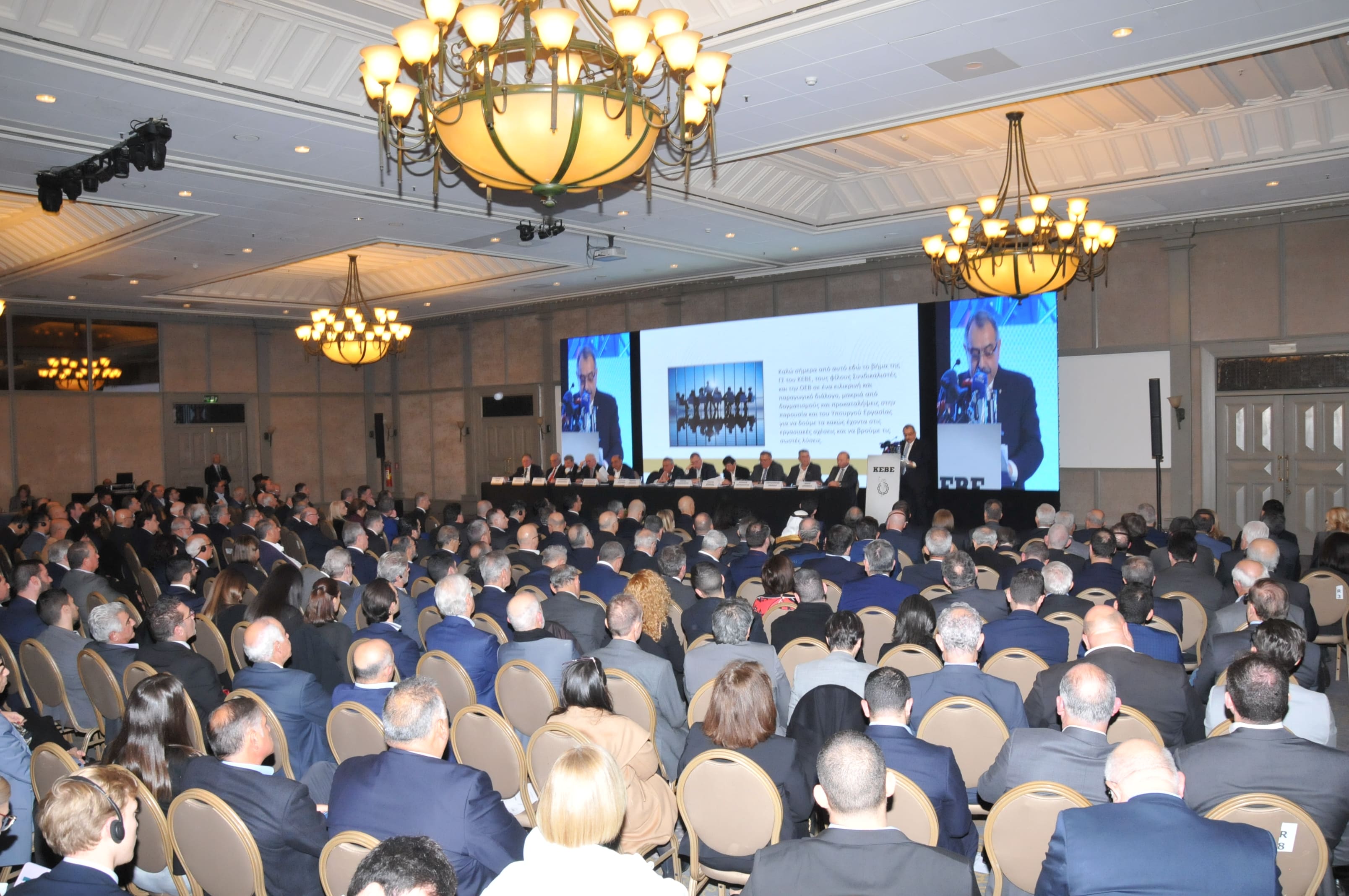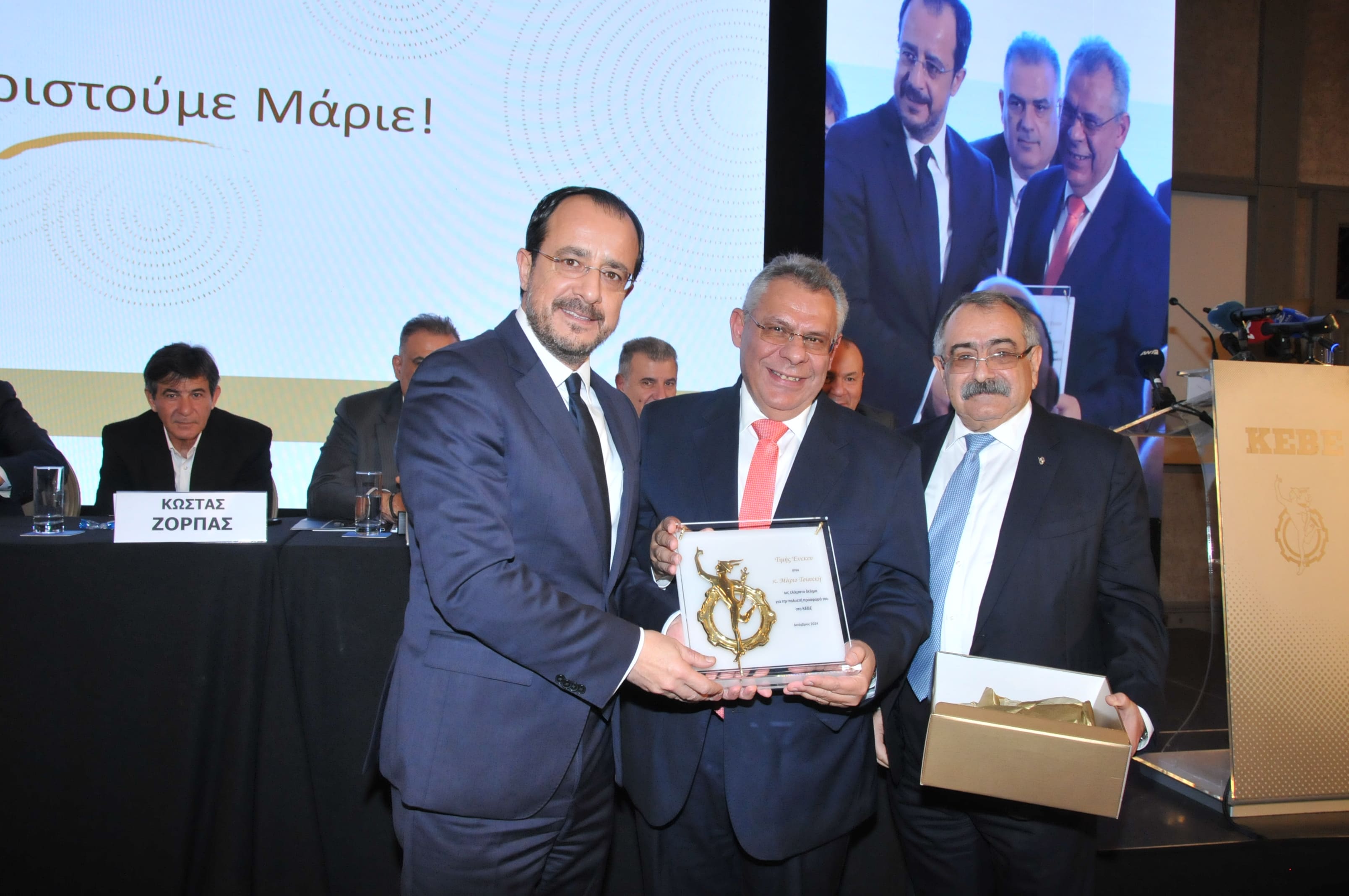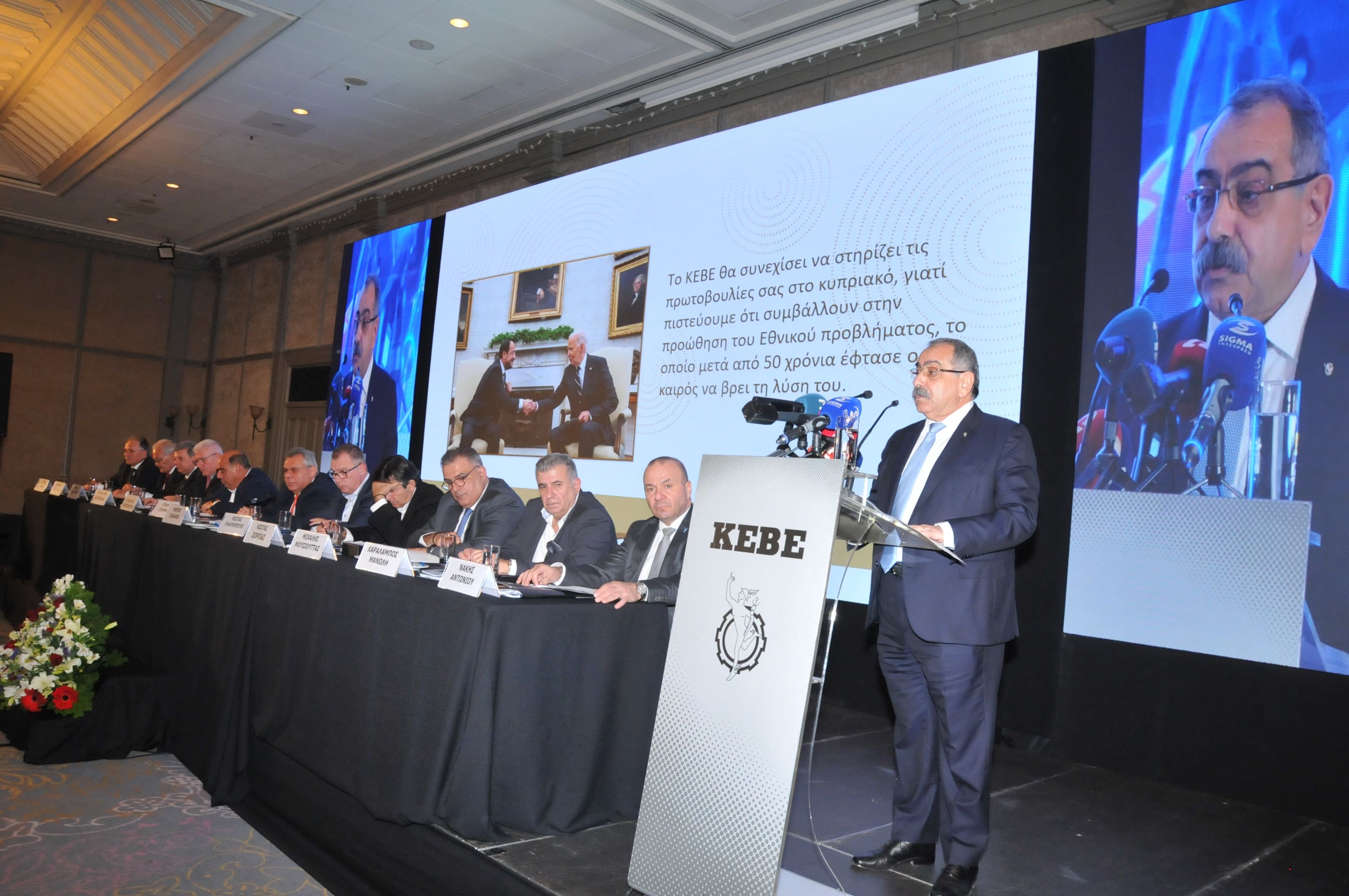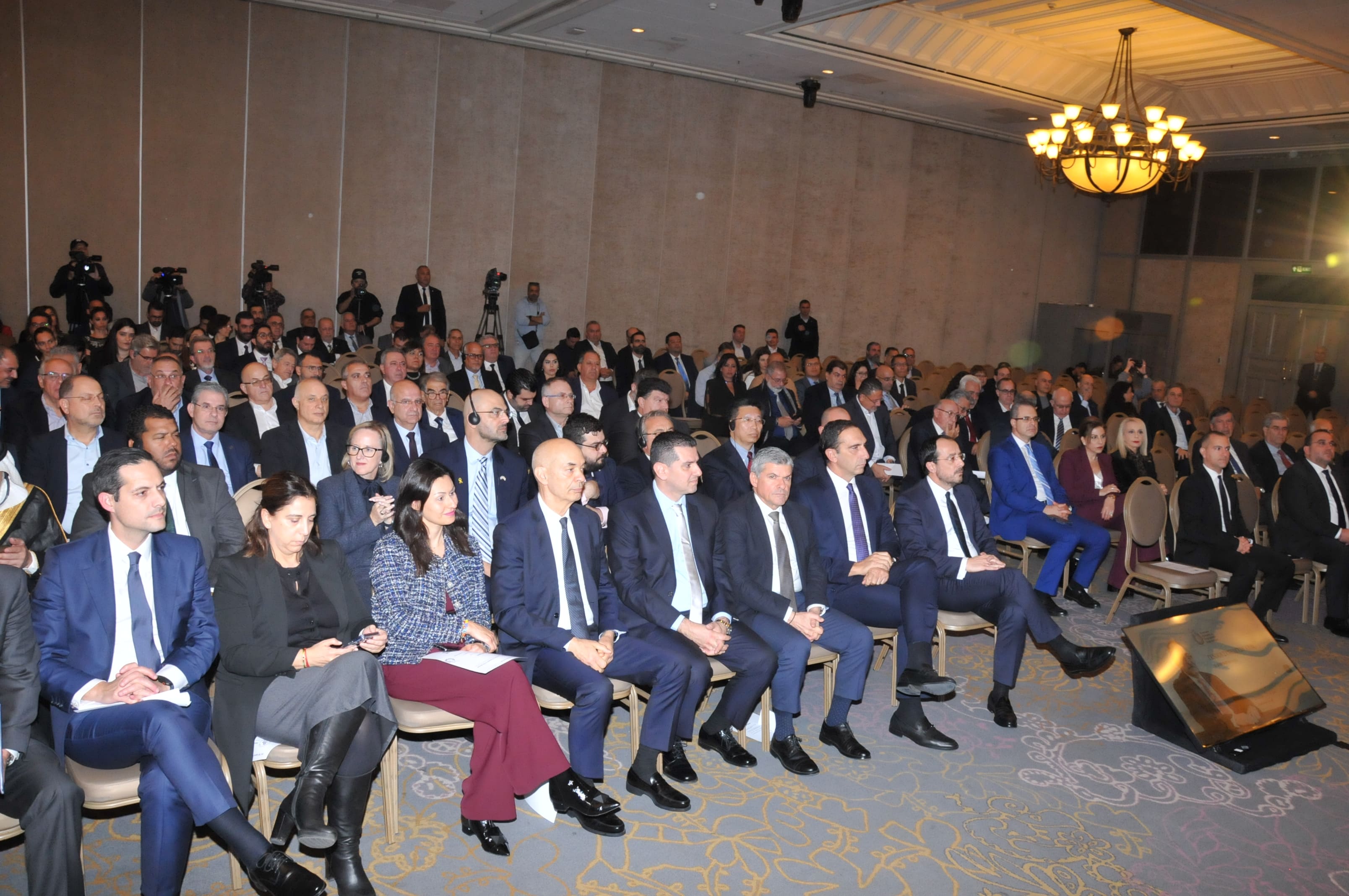Energy costs and labour issues addressed during Keve AGM
President Nikos Christodoulides presented a roadmap for economic growth and resilience during his address at the Cyprus Chamber of Commerce and Industry (Keve) annual general meeting in Nicosia on Thursday evening.
The president laid out plans for comprehensive tax reform, digitisation of public services, and initiatives to strengthen Cyprus’ industrial and financial sectors.
Christodoulides opened his address by affirming his administration’s focus on creating a supportive environment for business and entrepreneurship.
“Our government’s philosophy is rooted in the belief that a thriving business community benefits society as a whole,” he said.
He pointed to fiscal discipline, structural reforms, and a robust financial system as critical components of this vision.
Highlighting Cyprus’ economic achievements, he said that the country is projected to achieve a growth rate of 3.8 per cent in 2024, making it the third fastest-growing economy in the Eurozone.

Inflation is expected to fall from 3.5 per cent in 2023 to 2 per cent in 2024, providing relief to both businesses and households.
Public debt, which stands at 74 per cent of GDP, is forecast to drop to 69 per cent in 2024, with a target of reducing it further to under 60 per cent by 2026.
“These metrics reflect a strong and resilient economy, but we must not become complacent,” he stated.
“The global landscape is evolving, and we must adapt to maintain our competitiveness,” he added.
A key highlight of the President’s speech was the announcement of a comprehensive tax reform plan, which is expected to be unveiled in early 2025.
The reform aims to simplify Cyprus’ already competitive tax framework while introducing new incentives for investments in areas aligned with the green and digital transitions.
“Our aim is to ensure that our tax system remains a magnet for global investors while also addressing the needs of local businesses,” said the president.
The proposed reforms, he explained, will include measures to reduce bureaucracy, making it easier for businesses to navigate the system and focus on growth.
Complementing the tax reform, government will expand access to non-banking financial tools, such as the Cyprus entrepreneurship fund and an equity fund.
He said that these mechanisms will provide “much-needed financing for innovative businesses and startups, further diversifying the country’s economic base”.
The president also outlined plans for a major push towards digitising public services by the end of 2025.
He said that this initiative aims to streamline administrative processes, reduce costs, and improve efficiency for businesses and citizens alike.
A revised industrial policy will focus on enhancing the global competitiveness of Cypriot businesses.
This includes support for sectors with high export potential and measures to strengthen industrial clusters.
“We are committed to ensuring that Cyprus becomes a hub for innovation and a leader in global markets,” he stated.
His speech also mentioned the high energy costs have been a long-standing concern for Cypriot businesses.



The president addressed this by reaffirming the “government’s commitment to energy market reforms”.
He mentioned that the liberalisation of the electricity market is set for completion by 2025, allowing for greater competition and lower prices.
In addition, investments in renewable energy storage systems will be prioritised to support the country’s transition to a sustainable energy future.
Christodoulides also said that labour shortages, another pressing issue, are being tackled “through a revised foreign employment strategy”.
In this context, he referenced agreements with Egypt, Vietnam, and India. These agreements, he said, have been finalised in order to address immediate workforce gaps in critical sectors.
He added that the government is also working to upskill the local workforce through targeted training programmes, ensuring long-term solutions to labour market challenges.
President Christodoulides also highlighted the recent upgrades of Cyprus’ credit ratings by Fitch and Moody’s, which have placed the country in the ‘A’ category for the first time in 13 years.
“This is not just a badge of honour,” the president said.
“It is a reflection of our economic strength and stability, and it translates into tangible benefits for everyone—from lower borrowing costs to improved investor confidence,” he added.
He also underlined that these ratings improve Cyprus’ ability to attract international investments, a cornerstone of the government’s economic strategy.
Looking ahead, the president emphasised the importance of preparing for Cyprus’ Presidency of the EU Council in 2026.
He stated that the government aims to use this opportunity to advance both the European and Cypriot agendas, particularly in areas like digital transformation, sustainability, and regional cooperation.
To further bolster Cyprus’ international standing, a rebranding initiative is in the works.
He explained that this effort seeks to improve the country’s global reputation, attract foreign direct investment, and showcase its strengths as a business and innovation hub.
Keve president Stavros Stavrou also addressed the gathering, echoing the president’s call for reforms and investments.
Stavrou stressed the need for structural changes in tax policy, healthcare, and energy to ensure sustainable growth.
“The private sector is ready to collaborate with the government to achieve these goals,” he said.






Click here to change your cookie preferences